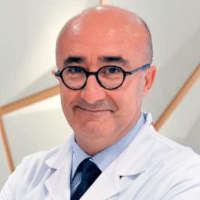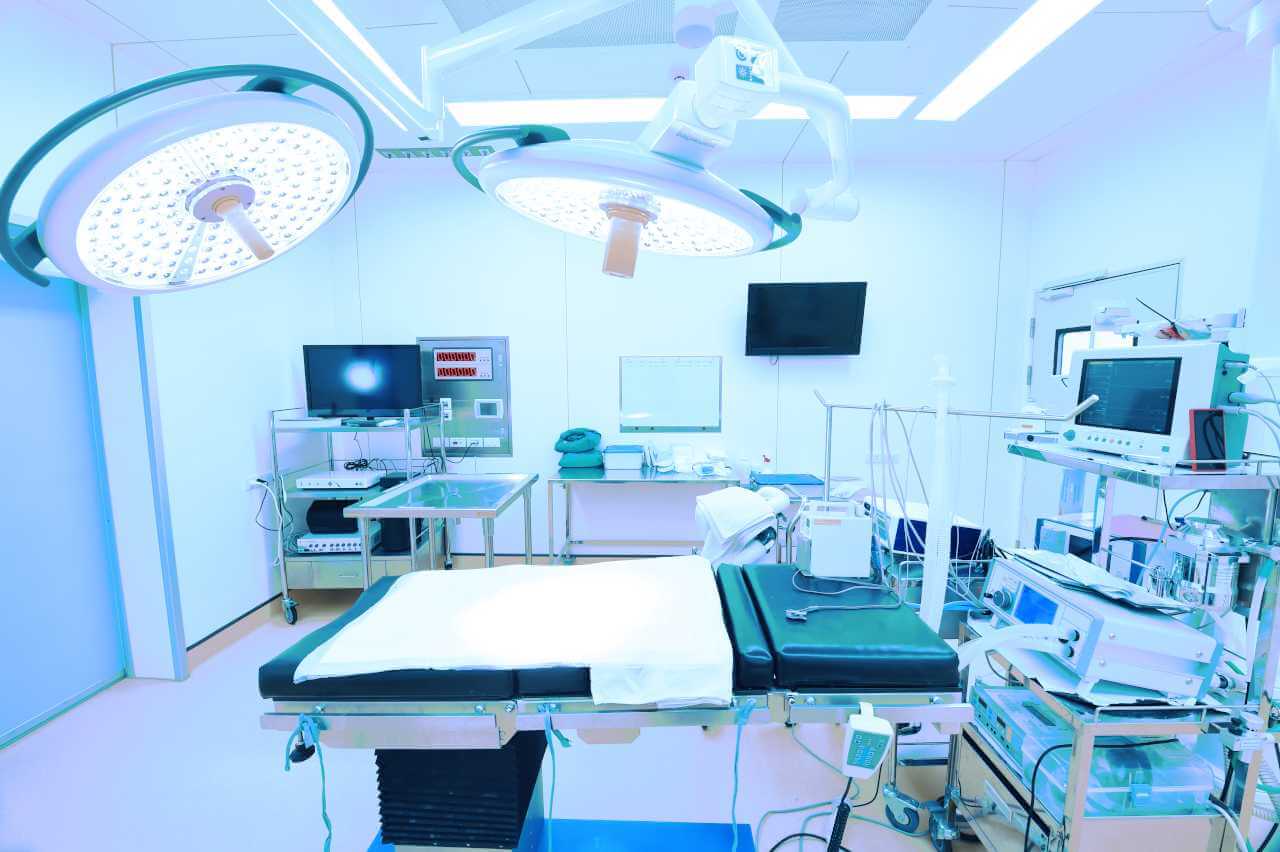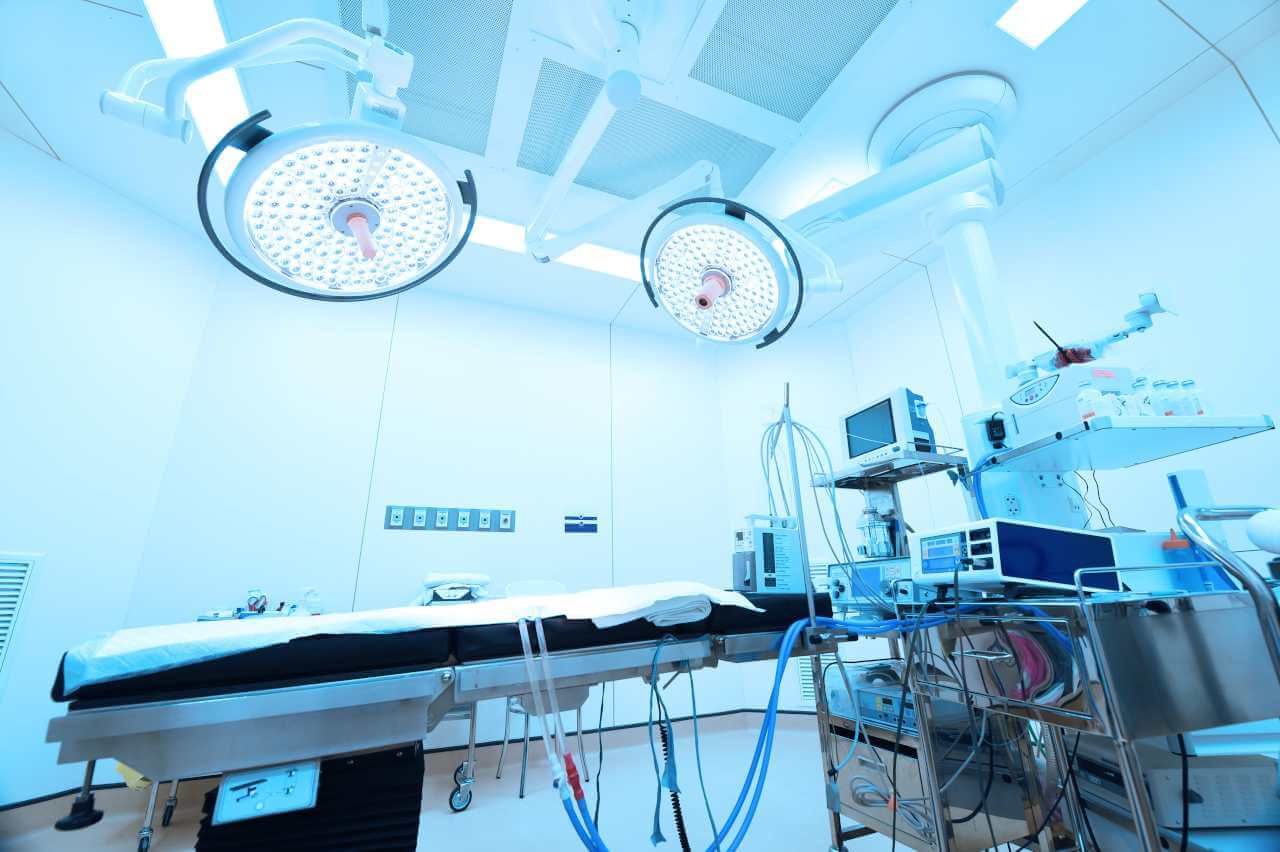
The program includes:
- Initial presentation in the clinic
- clinical history taking
- review of medical records
- physical examination
- laboratory tests:
- complete blood count
- general urine analysis
- biochemical analysis of blood
- inflammation indicators (CRP, ESR)
- TSH, fT3, fT4
- L-Dopa-Test
- indicators of blood coagulation
- neurological examination
- CT/MRI scan
- neuropsychological tests (if indicated):
- ENMG (electroneuromyography)
- EEG (electroencephalography)
- SEPs (somatosensory evoked potentials)
- VEPs (visually evoked potentials)
- BAEP tests (brainstem auditory evoked potentials)
- stationary EEG monitoring
- preoperative care
- surgical treatment of Parkinson's disease with deep brain stimulation and implantation of
neurostimulator (including the cost of neurostimulator) - 1-day intensive care unit stay
- postoperative MRI control
- symptomatic treatment
- control examinations
- the cost of essential medicines and materials
- nursing services
- full hospital accommodation
- developing of further guidance
How program is carried out
During the first visit, the physician will conduct a clinical examination and neurological examination, and go through the results of the available diagnostic tests. After that, you will undergo the necessary additional examination, such as the laboratory blood and urine tests, MRI or CT scan. Based on the results of an additional examination, the physician will clarify the localization of foci of pathological electrical activity in the brain. After that, the preparation according to the preoperative standard will begin.
The first stage of treatment is the implantation of stimulating electrodes into the brain. The operation is performed under local anesthesia, through a small opening in the skull. You will be awake and communicating with your surgeon, so that he will be able to assess the correctness of the brain electrodes placement.
The second stage of treatment is the implantation of a neurostimulator, which will generate electrical impulses that regulate the work of the brain. Depending on the anatomical peculiarities, the surgeon will place the neurostimulator under the collarbone or in the abdomen and attach the brain electrodes to it. Typically, this operation is performed under general anesthesia.
After the completion of the operation, you will stay in the intensive care unit, under the round-the-clock supervision of physicians and nurses. When the condition becomes stable, you will be transferred to a regular ward.
Your physician will evaluate the results of the postoperative MRI and program the neurostimulator according to your individual needs. You will be able to turn the device on and off yourself. After setting up the neurostimulator, the attending physician will schedule the date of discharge from the hospital and give you detailed recommendations for further follow-up and treatment.
Required documents
- Medical records
- MRI/CT scan (if available)
Service
You may also book:
 BookingHealth Price from:
BookingHealth Price from:
About the department
The Department of Adult and Pediatric Neurosurgery at the Memorial Bahсelievler Hospital Istanbul offers the full range of surgical treatment of diseases of the nervous system according to the highest international standards. The department's doctors specialize in the surgical treatment of pathologies of the brain and spinal cord, as well as diseases of the peripheral nerves. The department's medical team provides its services to patients of all age categories – from young children to the elderly. The department is headed by Prof. Dr. med. Gokhan Bozkurt.
The department has high-tech operating rooms, where endoscopic and microsurgical interventions are successfully performed, ensuring the fastest recovery and excellent treatment results. For maximum safety of surgical treatment, the doctors widely use in their clinical practice cutting-edge neuromonitoring and neuronavigation systems, intraoperative CT O-Arm, intraoperative ultrasonography and other technologies. The navigation systems are used during the surgical interventions on the brain and spinal cord. They also serve for 3D imaging of the operating field. Before the intervention, the doctor plans surgical manipulations according to the preliminary MRI scans. All tomography results are stored in a computer program. During the operation, the special camera reads the actual data from the operating table and compares it with the previously obtained MRI images. Neuronavigation also allows the surgeon to see the position of the surgical instruments in the operating field in three projections, on the monitor, and perform the manipulations without risk of damaging vital brain structures. Thus, the department's specialists provide patients with the highest level of safety and are able to perform operations in hard-to-reach areas of the brain. Thanks to neuronavigation, most of the operations in the department are performed using minimally invasive techniques, through small incisions.
One of the key focuses of the medical facility is on the surgical treatment of brain and spinal cord tumors. The operations are performed in both adults and children. The treatment of such pathologies requires an interdisciplinary and integrated approach. Therefore, the department regularly holds tumor boards with the participation of neurosurgeons, oncologists, radiologists, neuroradiologists and other doctors of related specialties. The doctors cooperatively develop optimal treatment tactics, taking into account the clinical specificities of the patient, the stage and size of the tumor, the patient's age, and his general health condition. In most cases, surgery is complemented by chemotherapy and/or radiation therapy.
The department's tasks also include the provision of medical care to patients with spinal diseases. The focus of the department's doctors is on patients with hernias of all regions of the spine, spinal injuries, spinal stenosis and congenital spinal anomalies. If possible, the department's specialists carry out endoscopic and microsurgical operations. The use of neuronavigation and neuromonitoring systems eliminates risks for the patient, including the risks of damage to the spinal cord and spinal nerves.
The neurosurgical interventions in children deserve special attention. The department's neurosurgeons most often admit for treatment children with brain and spinal cord tumors, vascular diseases of the nervous system, hydrocephalus (excessive accumulation of fluid in the brain) and spina bifida.
The department's range of neurosurgical services includes:
- Surgical treatment of cerebrovascular diseases
- Cerebral aneurysms
- Brain arteriovenous malformation
- Carotid artery stenosis
- Intracerebral hemorrhage
- Cerebral venous thrombi
- Surgical treatment of brain tumors, including brain metastases
- Surgical treatment of spinal cord tumors
- Surgical treatment of spinal diseases
- Cervical, lumbar and thoracic disc herniation
- Spinal stenosis
- Spinal injuries
- Surgical treatment of traumatic brain injuries
- Functional neurosurgery
- Parkinson's disease and other movement disorders
- Spasticity
- Epilepsy
- Surgical treatment of diseases of the nervous system in children
- Brain and spinal cord tumors
- Cerebrovascular diseases
- Hydrocephalus
- Spina bifida
- Other surgical services
Curriculum vitae
Professional Career
- Since 2108 Head of the Department of Adult and Pediatric Neurosurgery at the Memorial Bahсelievler Hospital Istanbul, Istanbul, Turkey.
- 2018 Specialist in Neurosurgery, Memorial Şişli Hospital Istanbul, Istanbul, Turkey.
- 2017 - 2018 Professor of Neurosurgery, Department of Neurosurgery, Faculty of Medicine at the Istinye University, Istanbul, Turkey.
- 2014 - 2017 Specialist in Neurosurgery, Memorial Ankara Hospital, Ankara, Turkey.
- 2012 - 2014 Assistant Professor of Neurosurgery, Faculty of Medicine at the Hacettepe University, Ankara, Turkey.
- 2008 - 2011 Lecturer in Neurosurgery, Faculty of Medicine at the Hacettepe University, Ankara, Turkey.
- 2006 - 2008 Specialist in Neurosurgery, Faculty of Medicine at the University of Toronto, Toronto, Canada.
- 1999-2008 Internship in Neurosurgery, Faculty of Medicine at the Hacettepe University, Ankara, Turkey.
- 1993 - 1999 PhD, Neurosurgery, Faculty of Medicine, Hacettepe University, Ankara, Turkey.
- 1992 - 1993 Research Fellow, Ondokuz Mayıs University Hospital, Samsun, Turkey.
- 1991 - 1992 Practitioner, Altındağ Merkez Health Center, Ankara, Turkey.
- 1990 - 1991 Practitioner, Çubuk Merkez Health Center, Ankara, Turkey.
- 1988 - 1990 Practitioner, Ardanuç Health Center, Turkey.
Higher Education and Postgraduate Training
- 1991 - 1993 Highly specialized training in Neurosurgery, Ondokuz Mayıs University, Samsun, Turkey.
- 1982 - 1988 Study of Human Medicine, Faculty of Medicine, Ondokuz Mayıs University, Samsun, Turkey.
Clinical Interests
- Surgical treatment of injuries, infectious lesions, as well as degenerative diseases of the spine (interventions using microscopic, endoscopic and percutaneous access).
- Surgical treatment of brain and spinal cord tumors in adults and children.
- Surgical treatment of congenital pathologies of the brain and spinal cord.
- Endoscopic removal of pituitary adenomas, surgical treatment of intraventricular brain tumors and skull base tumors.
- Surgical treatment of epilepsy.
- Surgical interventions on the brachial plexus and peripheral nerves.
- Surgical treatment of cerebrovascular pathologies and spinal cord pathologies (for example, aneurysms, arteriovenous malformations).
- Surgical treatment of brain and spinal cord injuries.
Scientific Publications
- 27 articles in international publications.
- 11 articles in Turkish publications.
- 20 book chapters in Turkish publications.
- 8 reports at the international congresses and 61 reports at the congresses in Turkey.
Awards and Honors
- 2005 Scholarship of the Turkish Neurosurgical Society (abroad).
- 3 awards of the Turkish Neurosurgical Society.
Memberships in Professional Societies
- Turkish Neurosurgical Society.
- Working Group on the Surgical Treatment of Spinal and Peripheral Nerve Pathologies of the Turkish Neurosurgical Society.
- Working Group on Neuro-Oncology of the Turkish Neurosurgical Society.
- Ankara Chamber of Medicine.
Photo of the doctor: (c) Memorial Bahçelievler Hospital
About hospital
The Memorial Bahçelievler Hospital Istanbul is an advanced multidisciplinary medical center that began its clinical practice in 2018. It is part of the world famous Memorial Healthcare Group. The hospital was designed in accordance with the very latest standards of modern architecture with the aim of providing top-class medical services in a pleasant and patient-oriented environment. It is worth noting that the interior of the medical facility is full of live plants, which have a positive impact on people and their mood. The hospital is awarded the prestigious LEED Platinum Certificate, confirming the highest level of environmental friendliness and safety of the buildings of the medical complex.
The hospital has 320 beds for patient hospitalization. The medical and technical base of the hospital is one of the best and most advanced in Turkey – modern diagnostic rooms with MRI, CT, PET-CT scanners, gamma cameras, X-ray equipment, mammography systems and other equipment, 15 operating rooms, including for robot-assisted, endoscopic and hybrid surgical interventions, intensive care units, etc. The hospital also has a high-performance state-of-the-art Elekta Versa HD SIGNATURE system for radiation therapy.
The powerful technical resources of the hospital are complemented by a highly professional medical staff, who have achieved significant success not only at the national level, but also in the international medical arena. The doctors and nursing staff of the hospital are distinguished by excellent medical qualifications, as well as humane and compassionate attitude towards each patient. They strongly support their patients on their way to recovery.
The medical center admits not only Turkish citizens for treatment, but also patients from 92 countries of the world, and therefore it boasts a wealth of experience in serving international patients with clinical cases of varying complexity.
Photo: (c) Memorial Bahçelievler Hospital, (c) depositphotos
Accommodation in hospital
Patients rooms
The patients of the Memorial Bahçelievler Hospital Istanbul live in cozy rooms with an excellent layout and modern design. The standard patient rooms are equipped with a comfortable automatically adjustable bed, a bedside table, a table and a chair, a wardrobe, a sofa for receiving visitors. The patient room also includes a TV, a telephone and Wi-Fi. Each room has an ensuite bathroom with shower and toilet. The hospital also provides patients with enhanced-comfort rooms corresponding to a five-star hotel.
Meals and Menus
The patient and the accompanying person are offered tasty and balanced three meals a day. If for some reason you do not eat all foods, you will be offered an individual menu. Please inform the medical staff about your food preferences prior to treatment.
Further details
Standard rooms include:
Accompanying person
During the inpatient program, the accompanying person can live with the patient in a patient room or a hotel of his choice. Our managers will help you choose the most suitable option.
Hotel
During an outpatient program, the patient can stay at the hotel of his choice. Our managers will help you choose the most suitable option.




